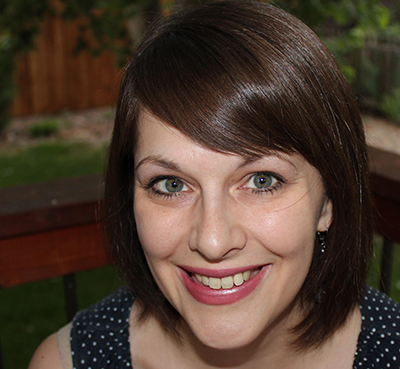by Meghan Johnston Aelabouni
If we say that we have no sin, we deceive ourselves, and the truth is not in us. If we confess our sins, God who is faithful and just will forgive us our sins and cleanse us from all unrighteousness. — 1 John 1:8-9
So when you are offering your gift at the altar, if you remember that your brother or sister has something against you, leave your gift there before the altar and go; first be reconciled to your brother or sister, and then come and offer your gift. — Matthew 5:23-24
Years ago, when I was a new pastor, I met with a volunteer Sunday School director–let’s call her Gail. I was anxious to discuss some concerns, anxious to fix the program, anxious to show good leadership–anxious in general. And anxiety did not lead me well. Apparently I came across as critical, dismissive and cold. After the meeting, Gail sent an email expressing her anger and hurt. I asked for a follow-up meeting and she agreed, giving me the opportunity to offer an honest, heartfelt apology to help repair our relationship – an opportunity I unfortunately botched.
When Gail explained to me how my words and tone had made her feel, I answered, “I’m sorry you felt hurt. I didn’t intend that at all. In fact, here’s what I was trying to say . . .” and then I spent half an hour restating my case.
It’s no surprise that this “apology” didn’t help. Gail resigned her position; our relationship remained tense for years. Whenever I saw Gail, I felt guilty that things hadn’t gone better.
Should I say something? I wondered. No, a voice said. If you apologize, you’ll be admitting you were wrong, and then people will think you have no idea what you’re doing. Besides, if you say something now, you’ll just dredge up the past and make things worse. Maybe if you act like it never happened, things will improve on their own.
That’s a lot of wrong for one internal dialogue!
 I should have known better. After all, I recited the confession and forgiveness in worship every week: “If we say we have no sin, we deceive ourselves, and the truth is not in us; but if we confess our sins, God who is faithful and just will forgive our sins and cleanse us from all unrighteousness.”
I should have known better. After all, I recited the confession and forgiveness in worship every week: “If we say we have no sin, we deceive ourselves, and the truth is not in us; but if we confess our sins, God who is faithful and just will forgive our sins and cleanse us from all unrighteousness.”
Confession–which is a form of apology–is a healthy part of faith. In seminary, I learned that apology is part of the reason for the passing of the peace, which is modeled after Jesus’ instructions in the gospel of Matthew to “first be reconciled to your brother or sister, and then come and offer your gift.” This is why it is often placed before the offering in the liturgy: to allow members of the community to acknowledge and resolve conflicts before sharing the offering and the meal together.
I can handle confession and forgiveness. The general acknowledgment that I have sinned (along with everybody else) is mercifully light on details. And spending time in “reflection and self-examination,” that is, privately pondering my sins, is already something I do daily–or nightly, when the day’s stumbles convince me that I am a failure. In those cases, only God is listening.
But a true face-to-face apology to someone I have hurt? That’s tricky. If I say I’m sorry, admit I messed up, become vulnerable in my failings–what then? So sometimes I can’t bring myself to apologize, even when I know I should. Other times I over-apologize, even for things that aren’t my fault, saying a generalized, shallow “I’m sorry” so often that it becomes meaningless. And time and again, I discover that acting like something never happened never seems to make it disappear.
Saying “I’m sorry, but . . .” is not a true apology. In seeking to justify or explain away something I have done or left undone, I dismiss the other person’s right to their feelings and experience. Likewise, “I’m sorry that you . . .” is not a true apology. It makes the other person’s feelings their problem, their fault, rather than making it clear that I realize that their feelings are the result of my actions.
When I have hurt other people, I learn (and re-learn) that what I intended is beside the point, and explaining why someone shouldn’t feel hurt is never helpful.
There’s a reason that the church practices confession and forgiveness, and the passing of the peace, the same reason that Jesus always connected love of God with love of neighbor. The abundant life Jesus offers is life in relationship and community. Being human means that our relationships and communities inevitably fall short. We hurt others; others hurt us. We need to give apologies, and we need to hear them.
The grace of God reminds us that our worth does not depend on always getting it right. So there is nothing to be lost (and much to be gained) by admitting our human failures — even the well-intentioned ones. As the verse from 1 Peter suggests, the apologies we never give can prevent us from fully offering our gifts to the community. Trying to convince ourselves that we can’t risk an apology because we’re right, or because we “didn’t mean to,” or for any other reason, means that — in the words of 1 John — we deceive ourselves, and the truth is not in us.
But as Jesus says, the truth can set us free. It is never too late to offer a true apology. So today, I took a deep breath and sent one to Gail. I hope she reads it.
Discussion questions:
- What’s the most meaningful apology you have ever received, and what’s the hardest apology you have ever given?
- What makes it difficult to offer a true apology? How might faith in God help?
- What would it look like for the church, as a whole, to offer a true apology? Where might it be needed?
Closing prayer:
God of endless grace and mercy, you know how our stubbornness and fear keep us from apologizing, and you yearn for us to experience the gift of freedom and healing that can come from true apologies. Through the power of your Holy Spirit, give us courage to be vulnerable, to speak truth, to give and receive forgiveness; that in apology, forgiveness, and reconciliation with one another, we might experience your abundant life. In Jesus’ name, Amen.
 Meghan Johnston Aelabouni is an ordained ELCA pastor who is currently studying full time for a PhD in Religion, Media and Culture. Meghan and her spouse, the Rev. Gabi Aelabouni, live in Fort Collins, Colo. with their three young children.
Meghan Johnston Aelabouni is an ordained ELCA pastor who is currently studying full time for a PhD in Religion, Media and Culture. Meghan and her spouse, the Rev. Gabi Aelabouni, live in Fort Collins, Colo. with their three young children.


Does,” I am sorry that what I did/said hurt you. Please forgive me”, constitute an apology?’ I did not know that I was not supposed to explain my actions or words. I am 88 long ago retired but live in an assisted living place now where it’s very hard to stay out of each other’s way. It would have been helpful to me if you had given examples of interactions between two people. Thank you for your advice.
Well put!
Great message ! I imagine we have all had such experiences – in my case, I was the Youth Director in a Congregation that called a new Pastor – she too came across as you describe in your story – I too left my position and the congregation and it left a big hole in my life & family, but I now realize that her intent was not to personally attack me – although at the time, that was definitely how I felt
Thank you for putting this so well in words.
Thank you, thank you thank you! I have experienced a similar circumstance as yours. However my pastor maintains I am “guilty” of some offenses which are totally uncharacteristic of my past and present persona. I have offered repeatedly to enter into a conversation with her to offer a platform for appreciating each other’s perceptions and to try getting a better understanding of each other.
Unfortunately as many times as I have offered, she has refused to enter into healing our relationship.
I no longer attend my church of 30 +years because I have no opportunity to go to the person who has offenses with me, therefore I cannot in full conscience offer my gifts at the altar of this church.
I struggle daily, not only for myself but also that the pastor will learn to listen carefully to the words she speaks about fogiveness etc. May God bless her so that she may find even greater peace.
This is so true in my life also. Thanks for speaking so honestly about this broken relationship. I, too, have people that are distant after an encounter similar to yours. I, too, come across cold and critical when I want to get things done!! But have learned to be in relationship first before working WITH PEOPLE TO GET THINGS DONE. Forgive me Lord for my critical and dismissive behaviors.
I am passing this article on to friends. This is good food for thought and soul. thanks
I loved your words and guiding thoughts. You write the way you speak – from the heart. I am so glad to still be able to hear your heart.
I made a apology to my former Pastor and he told me I did the apology wrong because I didn’t apologize to him publicly. So I am left wondering if he accepted my apology.